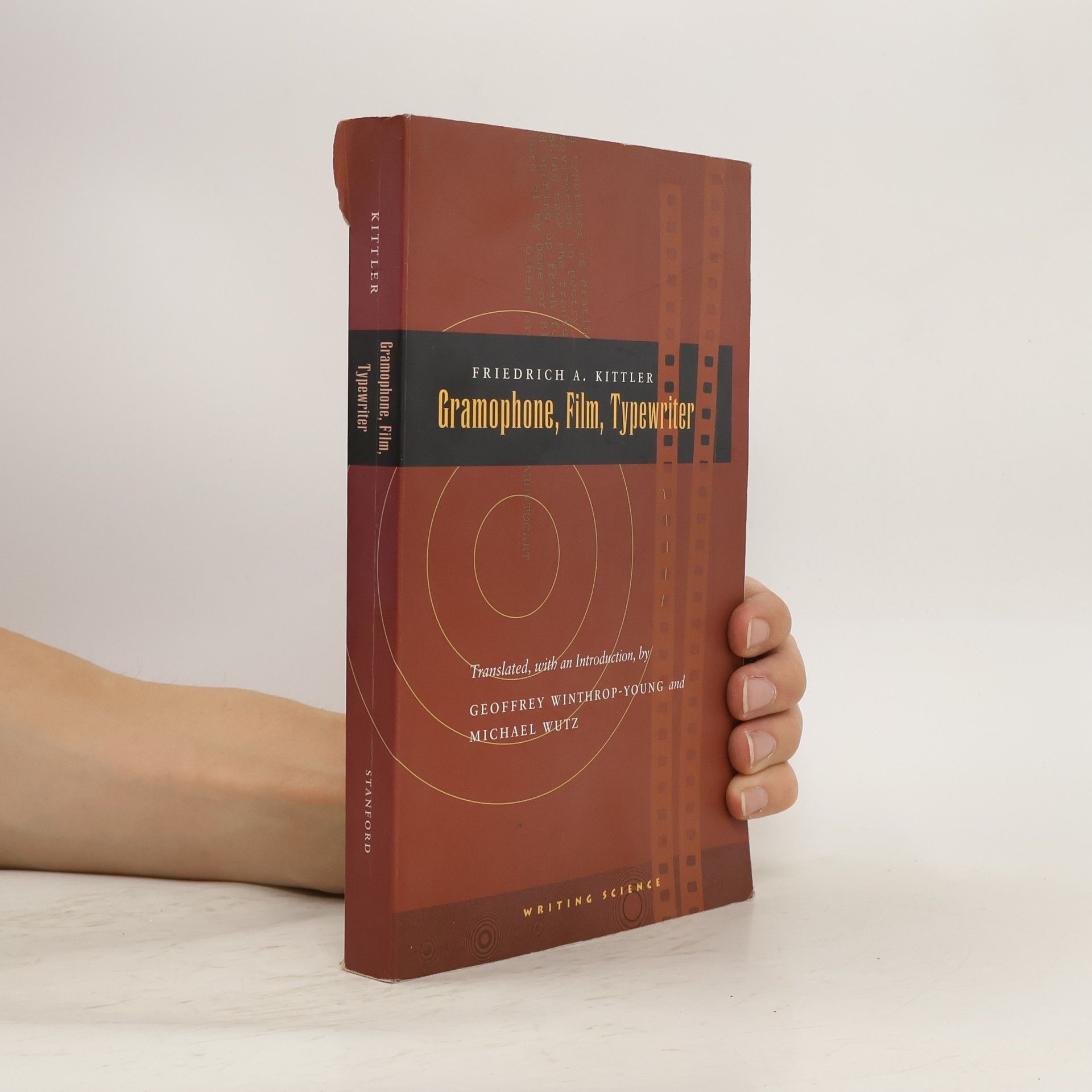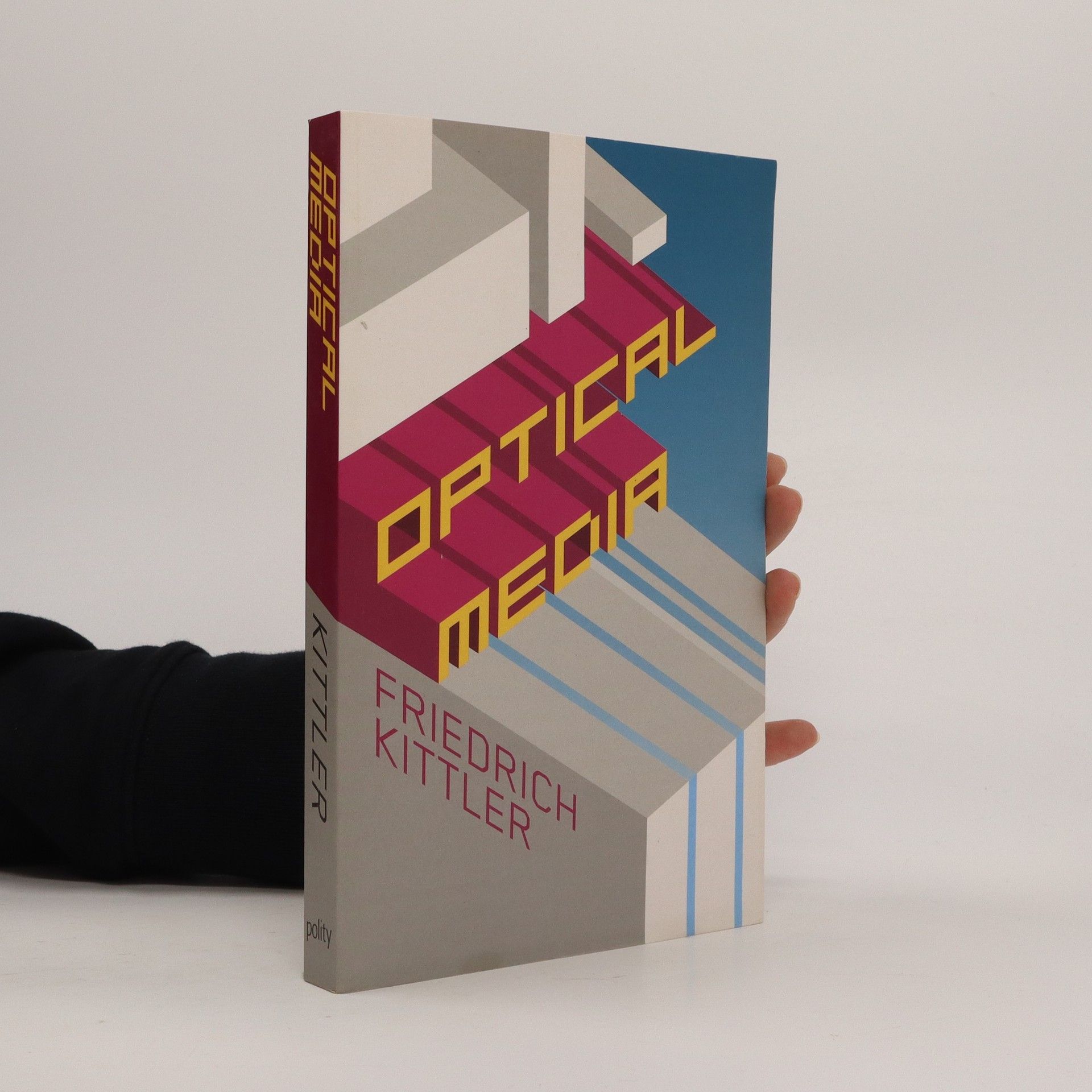Werkausgabe
I.B.4 (Zu Lebzeiten Veröffentlichtes | Aufsätze, Artikel, Rezensionen, Miszellen | 1981–1983)
- 495 pages
- 18 hours of reading
Friedrich Kittler was an influential literary scholar and media theorist whose work redefined media studies from the 1980s onwards. Kittler focused on the autonomous logic of technologies, arguing that media are not mere extensions of humanity but follow their own developmental trajectories. His provocative arguments, which linked technological conditions to epistemology and ontology, often emphasized that existence itself is bound to what is switchable or controllable. Employing a mix of polemic, erudition, and humor, he posited that technology forms the fundamental basis of human knowledge and being.






I.B.4 (Zu Lebzeiten Veröffentlichtes | Aufsätze, Artikel, Rezensionen, Miszellen | 1981–1983)
Operation Valhalla collects eighteen texts by German media theorist Friedrich Kittler on the close connections between war and media technology.
Baggersee versammelt frühe, unveröffentlichte Texte aus dem Nachlass Friedrich Kittlers. Die zwischen Mitte der 60er und Mitte der 70er Jahre verfassten Essays entstanden im Kontext neuer Freiräume. Am titelgebenden Baggersee, einer Kiesgrube bei Niederrimsingen in der Nähe Freiburgs, verbrachte Friedrich Kittler lange Sommer mit Schwimmen, Sonnen, Denken, Lesen, Diskutieren, Lieben und Grenzerfahrungen machen. Die Themenvielfalt der hier versammelten frühen Texte verdankt sich nicht zuletzt den Sommertagen am Baggersee. Die Essays kreisen um Gegenstände des Alltags, Lektüren, Reisebeobachtungen, Naturphänomene, Sinneswahrnehmungen, Körperfunktionen, Wiedergänger, Natur und Kultur, Tod und Leben. Friedrich Kittler schreibt über Haare, Tiere, Filme, Spielautomaten, Kreuzworträtsel, Spiegel, Popmusik, Technik, Rauchen, Rausch und Mode. Am Ende der Studentenbewegung war auch in Freiburg der Aufbruch zu einem neuen Denken spürbar. Das Bewusstsein einer Veränderung oder Krise eröffnete Raum für ein Schreiben, in dem Gedankengespinste, Beobachtungen, systematische Erörterungen und solitäre Einfälle zusammentreten.
Wenige deutsche Geisteswissenschaftler der letzten 50 Jahre haben die kulturelle Situation unserer Zeit, einschließlich ihrer akademischen Strukturen, so nachhaltig geprägt wie Friedrich Kittler. Seine Schriften trugen entscheidend dazu bei, dass Radios, Grammophone und Computer nicht nur zu einer kulturellen Faszination, sondern auch zum Gegenstand der philosophischen Reflexion geworden sind. Der Band versammelt Abhandlungen Kittlers aus 40 Jahren und zeigt das enorme Spektrum, die Intensität und die singuläre Kreativität seines Denkens.
Bei jeder Einführung sollten Sie wissen, was Sie erwarten dürfen. Der Titel deutet auf ›Philosophien der Literatur‹ hin, nicht auf Theorien. Während Theorie eine Präsentation der aktuellen Diskussion über Literatur bieten würde, beziehen sich Philosophien auf historische Denkweisen, die sich mit Dichtung und Literatur befassen. Erwarten Sie daher keine Einführung in Literaturtheorien, sondern eine Langzeitgeschichte von den alten Griechen bis zur Gegenwart. Diese Vorlesung ergänzt Seminare, die oft nur engere Abschnitte der Geschichte behandeln. Für Ihr Studium ist es jedoch entscheidend, sowohl begriffliches als auch sachliches Wissen über die grundlegenden Unterschiede zu erlangen, die die europäische Kulturgeschichte prägen. Diese Unterschiede sollten in klar unterscheidbare Teilsysteme zerlegt werden. Während die Kulturwissenschaft an anderen Universitäten praxisnah und gegenwartsorientiert ist, tragen wir in Berlin das Erbe von 3000 Jahren mit Stolz. Denn, wie Blaise Pascal einst sagte, sehen selbst wir Zwerge auf den Schultern von Riesen weiter als die Riesen.
Tristans Narrheit als Wahrheitsereignis. Mit einer Übersetzung der "Folie Tristan" aus dem Altfranzösischen von Friedrich Kittler
Nichts für politisch Korrekte, was sich am Ende dieses seinsgeschichtlichen Freilegens zeigt – und wohl auch nichts für die »Literaturgeschichte«. Im Zentrum des dritten Mittelalter-Bandes von »Musik und Mathematik« steht die Liebe von Tristan und Isolde. Glücklicherweise haben wir einen Text aus Friedrich Kittlers Nachlass, der die Richtung des Buches weist. Aus der Vielzahl der um 1200 zirkulierenden Erzählungen wählte Kittler die »Folie Tristan« in der Oxforder Version, da sie den Status einer in sich geschlossenen textuellen Komposition hat. Seine präzise Übersetzung in deutsche Blankverse sucht eine eigene Sprache und meidet sowohl Archaismen als auch moderne Wendungen. Diese Freilegung zeigt sich in Kittlers Analyse: Während im Hof Nausikaas das Zusammensein von Göttern als Frevel besungen wird, wird es in der »Folie Tristan« zur Heldentat. Wer solche Übertretungen den Ketzerlehren der Katharer gleichstellt, hat untertrieben. Hans Ulrich Gumbrecht, selbst romanistischer Mediävist, führt unter dem Titel »Tristans Narrheit als Wahrheitsereignis« in diese Übersetzung und in »Isolde als Sirene« ein und beleuchtet exemplarisch das Gesamtwerk des späten Kittlers. Dieser Band ist unüberlesbar: ein Buch der Freunde.
'Wir möchten euch Musik und Mathematik erzählen: das Schönste nach der Liebe, das Schwerste nach der Treue.' Diese beiden Worte, Musik und Mathematik, stehen für die Wurzeln von Kunst und Wissen: musikè, die Lust des Singens, Tanzens, Spielens heißt nach der Muse, die im Herzen alles aufbewahrt und daher davon sagen kann. Aus fast dem selben Ursprung stammt mathesis, das Lehren im Allgemeinen, und Mathematik, das Denken über Zahlen im Besonderen. Unter den wenigen Reimen, die in Griechenohren widerhallen, blieb der alte Spruch von pathein/mathein, leiden und lernen unverloren. Auf 'Aphrodite' und die Welt des Homeros folgen nun 'Eros' und die Polis der Athener. Das misogyne Athen des Euripides, Sokrates und Platon verdrängt Aphrodite (nach Sparta) und huldigt dem Eros, Mathesis trennt sich von Musik und wird zum Flottenbau, aus Nomos, dem archaischen Musikgesetz, wird Numismatik. Timetheos tritt in 'Konzerten', wörtlich also Musikwettkampfspielen, nicht mehr für frische Blumenkränze auf; er singt und spielt für harte Silbermünzen. Wir Sterblichen aber sind blind geworden, als eine Sonne namens Eidos – Sinn, Begriff oder Bedeutung – die Netzhäute verstrahlte von Athen bis Nagasaki. 'Musik und Mathematik', dieser Erinnerung an das homerische Ereignis des griechischen Vokalalphabets, bleibt es auferlegt, Erleuchtungen, die die Göttinnen und Götter sind, vor Platons Höhlengleichnis zu erretten.
This major new book provides a concise history of optical media from Renaissance linear perspective to late twentieth-century computer graphics. Kittler begins by looking at European painting since the Renaissance in order to discern the principles according to which modern optical perception was organized.
Wir möchten euch Musik und Mathematik erzählen: das Schönste nach der Liebe, das Schwerste nach der Treue. Diese beiden Begriffe bilden die Wurzeln von Kunst und Wissen: musikè, die Lust des Singens, Tanzens und Spielens, und mathesis, das Lehren im Allgemeinen sowie Mathematik, das Denken über Zahlen im Besonderen. Bei Homer bedeutet mathein nicht einfach zählen oder rechnen, sondern bezeichnet ein dunkles Wissen, das Helden erst nach Jahren des Erfahrens erlangen. Der alte Spruch von pathein/mathein, leiden und lernen, bleibt in den Ohren der Griechen lebendig. Friedrich Kittlers Lektüren folgen Odysseus und den Sirenen, denen er eine beeindruckende Neudeutung widmet. In den Bänden begegnet er Aphrodite Eros in den Sphärenharmonien Platons und dem Spiel von lógos und phonè bei Aristoteles. Der zweite Band thematisiert das heidnische und christliche Rom, während der dritte Band die Minne und die Liebe behandelt. Der vierte Band schließlich widmet sich der Turing-Galaxis und Heideggers Gestell. Die Inhalte umfassen Themen wie Odysseus’ Leiden und Lernen, die Göttin Kirke, die Entwicklung von Musik von Geräusch zur Fuge und die Verbindung zwischen Singen und Schreiben.
Ein Gedankenreigen, der mit einer Lektüre der Lykaon- Episode aus Ovids „Metamorphosen“ anhebt, über einen Kommentar des Prozesses gegen Phryne sich zu dem aus der Katerstimmung geborenen Liebesdiskurs in Platons „Symposion“ aufschwingt, um von einer Poetik der Gewandstudie getragen unsanft in Goethes und Hegels Griechenland zu landen, aus dem sich zu befreien es einer neuen Physik bedurfte.